Leading the way to Chinook magic!
About Chinooks - Health

This is a pretty comprehensive list of Chinook health issues, including many conditions that are quite rare! As a decade-long member and occasional Chair of the COA's Health and Genetics Committee, I focus strongly on *any* potential issue with breed health. I am proud of being at the forefront of new research and diagnostics like genetic testing for the breed, and in fact, it was testing I did "just because" with two of my dogs that identified two of the first known genetic conditions in the Chinook. Thankfully my dogs were unaffected, but they carried the potential to produce puppies with the condition if bred to other carriers. Now that there are tests, it is straightforward to ensure that no affected puppies are produced.
I've broken out this list into those that have the potential to be a significant impact on quality of life for an individual dog, and those that, in Chinooks, have a less significant impact on quality of life. This less significant impact could be due to mildness of condition, rarity within the breed, or lateness of onset. I list those conditions to ensure I remain very focused on keeping them rare, and ensuring the breed remains healthy far into the future.
More Significant
- Allergies (including Irritable Bowl Syndrome / Disease (IBS/IBD))
- Hip Dysplasia
- Seizures (Neurological events / Paroxymsal Dyskinesia)
- Mobility issues (hind end)
- Cancer
Less Significant
- Drug Reactions (Multi-Drug Resistance 1)
- Cryptorchidism (retained testicles)
- Cataracts
- Patellar Luxation
- Hypothyroidism
- Cardiac Issues
- Anasarca (Fetal Edema)
- Dwarfism
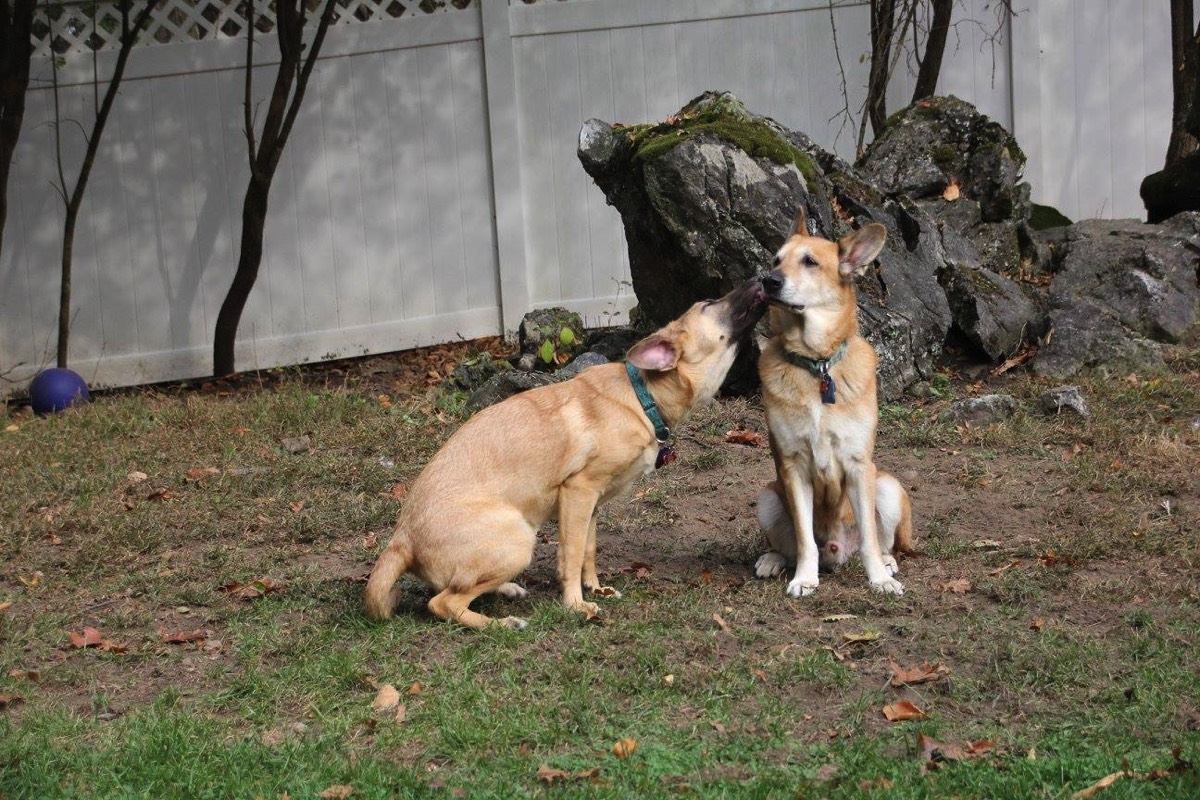
LONGEVITY
Anecdotally, Chinooks live on average to 12-14. It is not uncommon to hear of 14+ year old Chinooks, but we do lose a small number earlier as well. Common causes of death include mobility issues (neurologic & orthopedic) that seem unrelated to hip dysplasia, and various types of cancer. Most anecdotal information on Chinooks with cancer is on dogs that are over 10 years old. I'm hopeful a formal longevity study will be launched soon to provide better information.
Anecdotally, Chinooks live on average to 12-14. It is not uncommon to hear of 14+ year old Chinooks, but we do lose a small number earlier as well. Common causes of death include mobility issues (neurologic & orthopedic) that seem unrelated to hip dysplasia, and various types of cancer. Most anecdotal information on Chinooks with cancer is on dogs that are over 10 years old. I'm hopeful a formal longevity study will be launched soon to provide better information.
More Significant Health Concerns
ALLERGIES
Chinooks as a breed have both environmental and food allergies. There seems to be a higher occurrence of food intolerance/allergies, that can lead to GI issues such as chronic loose stool, until owners can settle on what type of food and treats are best tolerated by the individual dog. It is difficult to know what percentage of Chinooks is truly affected— some of the symptoms are quite mild. Allergies can, however, be very difficult to narrow down, and cause frustration for the owner and discomfort to the dog. They are one my priorities to minimize risk in my breedings. A small number of Chinooks have more significant GI issues and are diagnosed with IBS/IBD.
HIP DYSPLASIA
The Orthopedic Foundation for Animals (OFA) notes that around 17% of Chinooks are diagnosed with hip dysplasia (as of Dec 2016). The vast majority of affected Chinooks lead healthy and active lives even with Moderate dysplasia - and only become symptomatic for arthritis as they hit double-digits. By that age, even dogs with normal hips per the OFA are not unlikely to experience a slowing down and mobility issues. A VERY small number of Chinooks with hip dysplasia (i only know of five in the last decade) require intervention early in life (surgery, therapy, etc.).
SEIZURES (Neurologic Events/Paroxysmal Dyskinesia)
Per the last study around a decade ago, a bit less than 10% of Chinook owners reported their dog had a neurologic event. It is now theorized at least some of these are related to a drug reaction- see MDR1 below for more details. It does appear, however, that Chinooks do have a genetic condition that causes what most people would call seizures (freezing in place, temporary loss of mobility on half of the body, excessive salivation, etc.) in Chinooks. The majority of affected dogs have more mild expression including a partial loss of mobility, curling of paws, etc. that is called "Chinook seizures". A very few dogs have reported full tonic-clonic or "grand mal" type seizures. Dogs in general are more prone to seizures than humans, but the Chinook percentage is likely higher than the average dog. Seizures are unpredictable and scary, for both dogs and humans, which causes the higher rating for impact on quality of life. There is also sometimes a need to ensure dog safety during an event, which A very small number of Chinooks in the last decade have had seizures that cause life-threatening issues. Genetic research into the potential cause(s) is ongoing.
MOBILITY ISSUES (Hind End Weakness)
Older Chinooks (generally over 10, occasionally a bit younger) sometimes experience weakness / gradual loss of control over their rears. In some dogs, this presents as a neurological issue, in others, orthopedic and potentially related to arthritis in the spine. These issues appear to be unrelated to the presence of hip dysplasia. A majority of the Chinook breeding population and many affected dogs have been tested for Degenerative Myelopathy, and all have been clear of the mutation. While it is to be expected that dogs slow down as they age, and arthritis is an inevitable result of living long enough, these mobility issues have the potential to cut short the life of an otherwise healthy Chinook senior.
CANCER
Cancer is a common cause or suspected cause of death in older Chinooks. As it often is suspected in dogs that are in the twelve+ year range, we don't have a lot of detailed analysis on types as owners often elect to skip necropsies on aged dogs, but we do hear about hemangiosarcoma and lymphosarcoma more often. A handful of Chinooks under ten have been diagnosed with cancer. This is something we are watching carefully to ensure it does not develop into a trend for the breed.
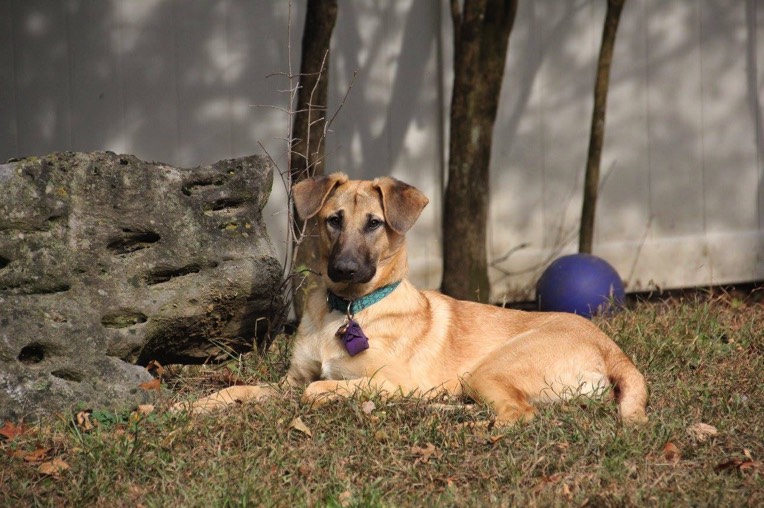

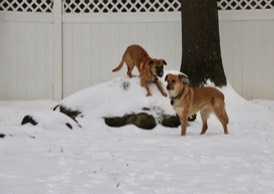

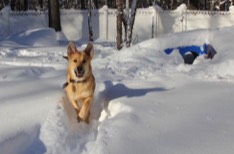
Less Significant Health Concerns
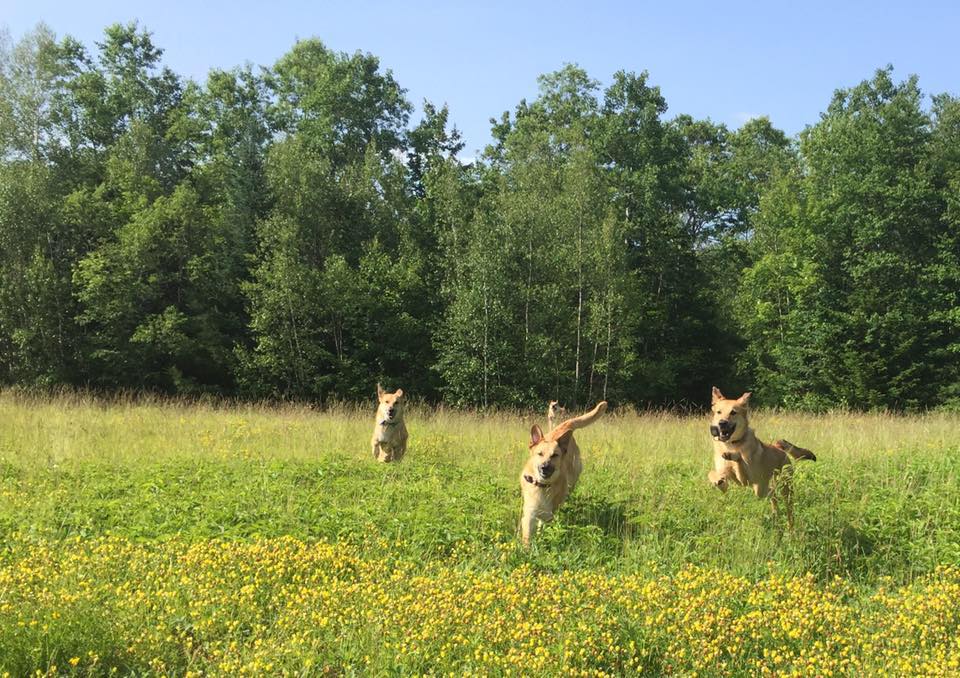
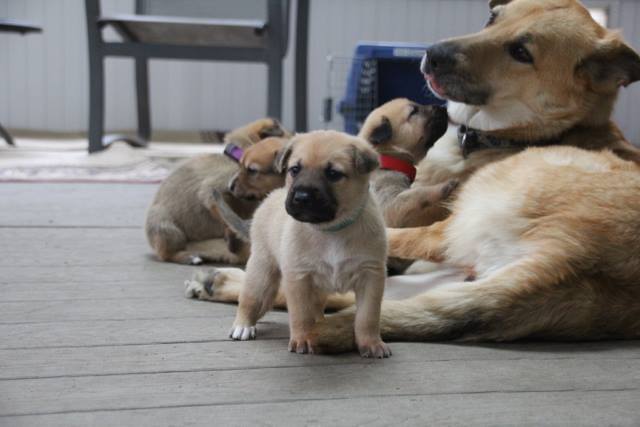
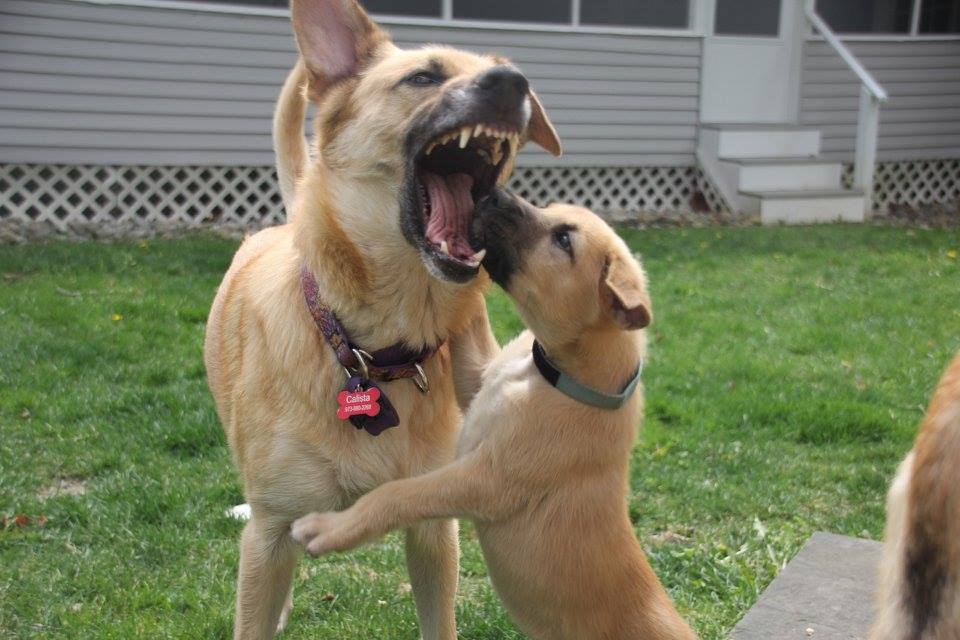
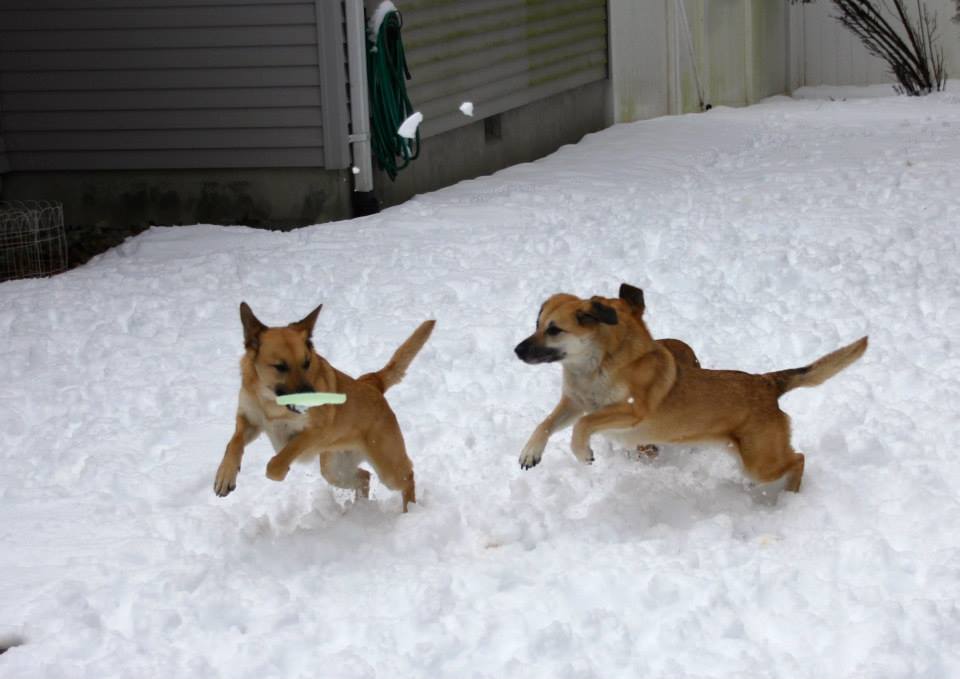
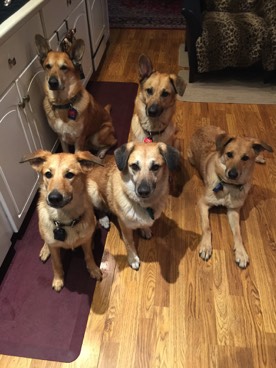

DRUG REACTIONS (Multi-Drug Resistance 1)
Recent genetic testing has identified that around 18% of Chinooks carry a mutation common in herding breeds that predisposes them to issues with certain drugs, including cancer therapies and anti-parasitics. A simple genetic test can identify dogs that carry one or more copy of the mutation — as long as the dog is not prescribed problematic medications, this condition causes no negative impacts. It is theorized that MDR1 may be behind some of the historical incidence of seizures /neurological conditions in the breed.
Click here for more about MDR1.
CRYPTORCHIDISM (Retained Testicles)
In a study about a decade ago, it was found that around 30% of Chinook males were unilaterally or bilaterally cryptorchid. This means that after birth, the testicles were retained in their abdominal cavity. While this is an issue for the breeding population, it rarely causes an issue in the individual dog. Retained testicles have a higher risk for testicular cancer in older dogs, but this is easily addressed by neutering the dog. While a cryptorchid neuter is more complicated than a normal one, it is not typically more difficult than a standard spay
CATARACTS
Some Chinooks are diagnosed with punctate cataracts (literally little pin pricks) on their standard eye exams. These in fact don't impact the vision of the dog, or require any intervention in the shape of surgery or medication. They are there, and it is good for us to know about the issue in the breed, but they are largely unimportant in everyday life. We do see Intermediate cataracts in some Chinooks, particularly older dogs. Again, it is almost unheard of for this to result in any intervention or serious impact to vision. In very, very rare cases we have seen Chinooks affected with juvenile cataracts. These dogs require surgical intervention and can lose basic vision. We don't have a test for this, unfortunately.
PATELLAR LUXATION
A small number of Chinooks have been diagnosed with Patellar Luxation - where the knee cap can move out of the groove. This causes mobility issues until it pops back in. The majority of diagnoses are Grade 1/2 meaning it happens infrequently. I only know of two cases where a Chinook had surgery to address the issue- for the most part it is does not significantly impact the dog.
HYPOTHYROIDISM
Occasionally we find Chinooks, mostly those that are neutered or spayed, diagnosed with hypothyroidism. This can cause issues such as lethargy, poor coat, itchiness, and sometimes behavioral issues. The condition is easily and fairly inexpensively managed with medication.
CARDIAC ISSUES
There is some evidence of cardiac issues in older dogs- generally those that are 12+ years of age. This can be both an enlarged heart, and mitral valve disease. Several Chinooks have been tested for genetic heart issues (like dilated cardiomyopathy) and been found clear of the mutation. While fairly limited to older dogs at this time, this is an area we continue to monitor to ensure it doesn't develop earlier onset.
ANASARCA (Fetal Edema)
This is a condition that appears to be recessive genetically, and it causes some puppies to be born with underdeveloped lungs and edema. These puppies do not survive. This is not a common experience, but is something that Chinook breeders consider in breedings to ensure the lowest risk for whelping females.
DWARFISM
Thanks to Calista, we have a validated genetic test for Dwarfism in Chinooks. Even when it occured, dwarfism was a mild condition- affected Chinooks were as likely to live long healthy lives as their non-dwarf siblings. But now that we have a simple genetic test, we can ensure that we do not produce affected puppies in the future.
The Chinook Pedigree Project worked across all clubs and breeders to develop a comprehensive pedigree database for the breed.
This was used in a breed analysis performed by the Institute of Canine Biology- you can learn more about it by clicking here.
I'm very proud of this effort for the breed, and remain the Chinook Breed Coordinator at ICB.
This was used in a breed analysis performed by the Institute of Canine Biology- you can learn more about it by clicking here.
I'm very proud of this effort for the breed, and remain the Chinook Breed Coordinator at ICB.